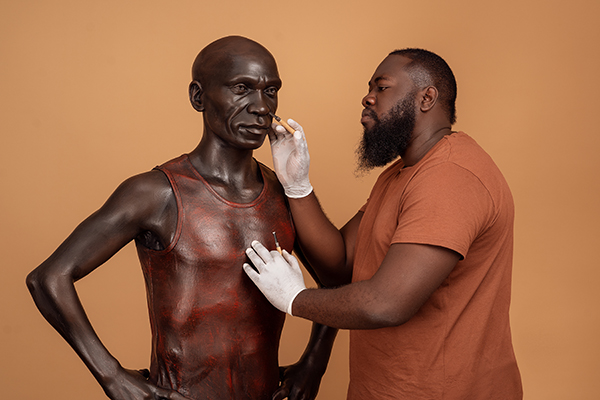Tradition allows a stand-in to serve King Dalindyebo’s jail term
A person can be appointed to serve Abathembu King Buleyekhlaya Dalindyebo’s 12-year jail term on his behalf according to tradition, the Congress of Traditional Leaders of SA (Contralesa) has said.
The Contralesa general secretary said that according to tradition, the king does not really go to jail. The Abathembu people choose a person to serve the sentence on his behalf because he is the father of the nation.
He said that this was done knowing very well that the king would do something to thank the servant.
The person may be compensated in terms of being given the status of a supreme loyal subject, headman or chief. He may even be given a piece of land or cattle.
Constitutional law expert Professor Pierre de Vos however contradicted this, saying that no traditional leader was above the law.
He said that the constitution allowed for the recognition of traditional leaders and customary law, but no leader has the power of a court to find somebody guilty or punish them.
“There is no provision in South African law for one person to serve another sentence. It would be like one person writing an exam on behalf of on another person. It would be a fraud in some way,” he said.
The Supreme Court of Appeal on Thursday replaced the king’s 15-year jail sentence with a 12-year one.
Dalindyebo succeeded only in having his conviction on a charge of culpable homicide and the accompanying 10-year jail sentence set aside. The SCA dismissed the rest of his appeal.
The traditional leader was found guilty by the Eastern Cape High Court in 2009, on seven accounts of kidnapping, three of arson, three of assault, two of defeating the ends of justice and one of culpable homicide.
Dalindyebo had previously reportedly indicated his intention to approach the Constitutional Court to challenge the SCA ruling.
The Eastern Cape co-operative governance and traditional affairs department said in a statement that “King Dalindyebo remains the King of Abathembu”.
President Jacob Zuma however has the powers to remove a king’s standing after considering formal submissions from the relevant royal family.
The department said a successor could assume the position, roles and responsibilities subject to the royal family having taken a resolution and formally informing Zuma.







